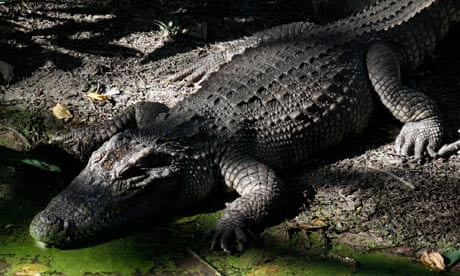Chinese police have rescued 3,600 smuggled crocodiles they believe were en route to dining tables in southern Guangdong province.
The creatures – which measured up to 1.7 metres long and together weighed 16 tonnes – were intercepted in Guangxi Zhuang region, close to the border with Vietnam, state news agency Xinhua reported.
Siamese crocodiles are endangered in the wild, although they have been bred in captivity successfully.
Chongzuo police arrested three foreigners after receiving a tip-off about the unusual cargo in the trucks, they said.
Forty-two of the 3,619 animals died in transit due to hot weather, prolonged dehydration and the cramped conditions. The rest are now receiving treatment from vets.
Officials said the smugglers had planned to sell them to restaurants in neighbouring Guangdong province – famed in China for its residents' exotic and wide-ranging culinary tastes.
Zheng Yuanying, southern China programme director of the Green Eye of China environmental protection group, said the government had been stepping up efforts to crack down on the trade in exotic animals, but that the black market persisted.
Sellers claim Siamese crocodiles have special nutritional benefits, he said, but the main reason for diners eating them was that they liked to try new and adventurous dishes.
But a growing number of young Chinese volunteers are challenging the trade in unusual and often endangered creatures.
Zhang said authorities needed to further strengthen border inspections, adding he had heard of people simply walking across the border with crocodiles in boxes on their backs.
"Secondly, it should check the hotels and restaurants, check the certification [of their ingredients] and inform the public about restaurants who provide these dishes.
"Finally, although people all know it is illegal to eat these wild creatures, they will still eat them as long as the market sells them. What's needed is a long-term, stronger campaign to explain to people why they shouldn't eat crocodile," he said.
